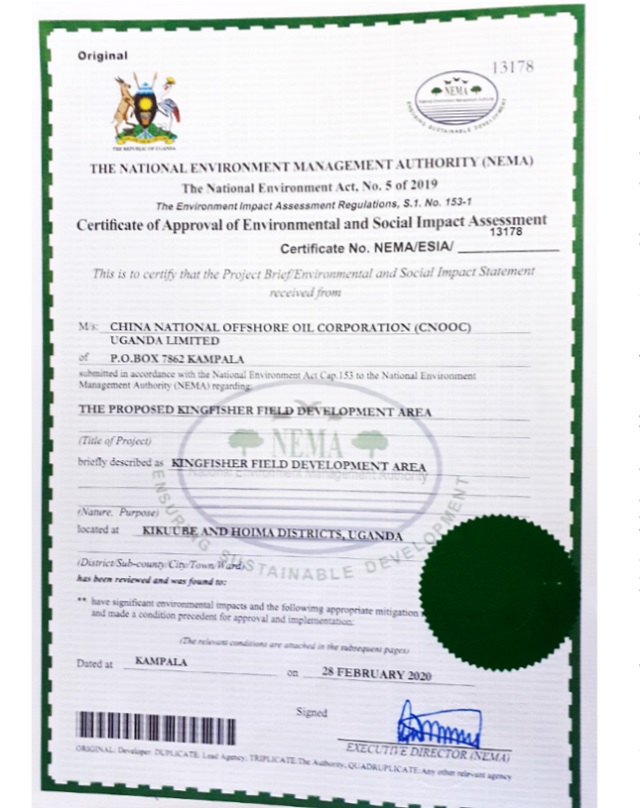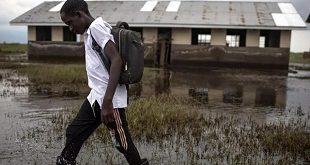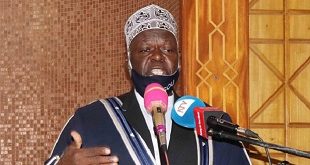
NEMA’s approval paves way for construction of oil field facilities
Kampala, Uganda | RONALD MUSOKE | Uganda’s environmental agency, NEMA, has approved CNOOC’s environmental and social impact assessment report for the Kingfisher project following ten months of scrutiny and evaluation.
Dr. Tom Okurut, NEMA’s executive director issued the certificate of approval to CNOOC Uganda Limited’s president, Zhao Shunqiang, on March 09 at the environmental agency’s head quarters in Kampala.
Although civil society organizations that track developments in Uganda’s oil industry have at times accused NEMA of issuing certificates of approval to the oil companies without listening to the merits of local residents’ concerns, Okurut said the Kingfisher Development Area certificate had been issued “in line with the principle of sustainable development.”
“NEMA shall continue to maintain an efficient mechanism for sustainable environment and natural resource management,”he said.
This development comes in as many months since NEMA embarked on receiving comments on the environmental and social impact assessment in May last year for the Kingfisher project in Hoima that was submitted by CNOOC Uganda Limited— the Chinese operator that is looking at developing oil production infrastructure along the southeastern side of Lake Albert. The other two players in Uganda’s oil industry are Total E&P and Tullow Oil Uganda.
In June last year, NEMA conducted two public hearings in Kikuube and Hoima District. Host communities in the two districts and other interested stakeholders gave several recommendations on the project.
NEMA also went ahead and subjected the Kingfisher ESIA to a review process and asked CNOOC to fix gaps in its report before NEMA endorsed it. By law, ESIA studies are carried out to establish the potential positive and negative social and environmental impacts of any proposed project.
Kingfisher is perched on the southeastern shores of Lake Albert in Buhuka Parish in Kikuube District. With NEMA’s scrutiny out of the way, CNOOC which was the first international oil company to get an oil production licence from the government in 2013 is now expected to build infrastructure that will enable it extract up to 40,000 barrels of oil per day.
CNOOC Uganda Ltd, which is a subsidiary of the China National Offshore Oil Company Ltd, China’s largest producer of offshore crude oil and natural gas, will now proceed to build oil field facilities. These include; a central processing facility (CPF), four well pads holding 31 production and water injection wells, an airstrip, jetty, flow lines, construction material yard and camps and access roads. A 46km feeder pipeline that will move crude from the CPF in Buhuka to the delivery point at the proposed Kabale Industrial Park in Hoima District is also part of the Kingfisher development infrastructure.
“This is a great milestone for CNOOC Uganda Limited and the development of the oil and gas project in Uganda; it is a step closer to a final investment decision and realization of [Uganda’s] first oil,” said CNOOC’s Zhao shortly after receiving the certificate.
Kingfisher, Tilenga alongside the East African Crude Oil Pipeline (EACOP) are the flagship projects upon which Uganda is hinging hope of attracting about US$ 20bn over the next couple of years.
The Tilenga oil project constitutes License Areas 1&2 which are currently operated by Total E&P Uganda B.V and Tullow Uganda Operations Pty Ltd and is found in the north of Lake Albert closer to the Uganda-DR Congo border while Kingfisher (EA-3) lies along the southeastern region of Lake Albert.
The two projects are expected to process up to 230,000 barrels of crude oil when production eventually starts probably in 2023/24. About 60,000 barrels of crude oil will be transported to an oil refinery in Hoima while the rest will be taken to the international market via the East African Crude Oil Pipeline (EACOP) whose ESIA public hearing was done last year and is pending approval by NEMA.
Three public hearings on the EACOP project’s environmental and social impact assessment were held in October, last year, in Kakumiro, Mubende and Rakai Districts, which are among the 10 districts through which the 1444km long, US$3.55bn pipeline, will traverse.
Uganda made its first oil discovery 14 years ago, in 2006, but plans to commercialize the petroleum resources, now estimated to be in the region of 6.5bn barrels of oil, have hit several bumps following several disagreements between the government and the oil companies.
Though senior government officials said late last year that they expected the oil companies to agree upon a Final Investment Decision, both parties are still locked in negotiations.
****
 The Independent Uganda: You get the Truth we Pay the Price
The Independent Uganda: You get the Truth we Pay the Price


